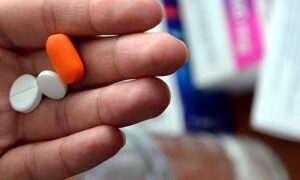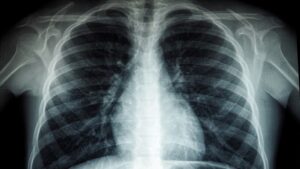[ad_1]
Makeup is an effective way to improve women’s quality of life. Applying 2-3 coats of mascara for a seductive look, covering skin imperfections with make up or foundation and a touch of blush are capable moves to increase confidence and lift their mood. Surely, however, makeup is not only used to camouflage and cover the insecurities of the fairer sex. It is used by women who want to be noticeably more attractive, more confident, social and dynamic, as it can significantly change other people’s perceptions of their personality.
Especially during the festive period that we are going through, which calls for a neat and bright appearance in increased social contacts, even women who do not wear make-up every day, give in to the dictates of the days.
But how harmful are cosmetics? What problems can they create on the skin and how can they be avoided?
“A cosmetic is any topically applied product used to beautify and clean the skin. On average women use 7 types of cosmetics every day and the number of those who develop skin problems because of them is remarkable. Research shows that up to 10% of the population will have some kind of reaction to a cosmetic during their lifetime, but this percentage does not exactly reflect reality, since users do not turn to a doctor for mild reactions,” he explains. Dermatologist – Venereologist Dr. Christos Stamou.
The range of cosmetics is huge, therefore also of allergens. The ones that most often cause problems are the fragrances and preservatives contained in these products.
Perfumes are responsible for most skin diseases. Here’s a word of caution: cosmetics that say they’re fragrance-free don’t mean they don’t contain any fragrance. They may contain some to mask another chemical smell.
Preservatives are the second most common cause of skin problems. Their addition is necessary mainly in cosmetics that contain water, to prevent the growth of bacteria or fungi. The best known are parabens, which, in addition to skin problems, can act like a very weak estrogen in the body when they penetrate through the skin, possibly activating the development of breast cancers and disrupting the normal functioning of the reproductive system.
Facial cleansers are also guilty of skin diseasesbecause of the surfactants necessary to clean the skin, tonic and astringent products, because of the alcohol and acids they contain, and exfoliants, which in some skins can cause severe inflammation.
The most common are irritant contact dermatitis, allergic contact dermatitis and acne.
Possible symptoms of irritant contact dermatitis are burning sensation, itching, redness, appearance of scaly skin followed by peeling. To treat it, the cosmetic that has caused it must be removed from the skin and medical advice must be sought, for the administration of the appropriate local treatment and the provision of personalized advice for the use of the appropriate products that the skin can accept without problems appearing.
Allergic contact dermatitis is the next most common skin disease caused by the use of inappropriate cosmetics. The user experiences symptoms due to contact with a specific ingredient, wherever it is contained. Then it shows itching, redness, swelling or even blisters, both locally and beyond the skin where the cosmetic was applied. And in this skin disease, the treatment begins with stopping the use of the product that caused it, administering medication and, after the allergic dermatitis subsides, performing a test to find the component that was responsible for its appearance.
Some cosmetics that remain on the skin for a long time can cause acne, especially in people who are susceptible and have a history during adolescence. Their treatment does not differ from the usual treatment of the condition, which includes topical or oral pharmacotherapies, as well as phototherapy (with or without drugs).
In addition to makeup products, problems can also be caused by those used to remove it, especially in people with pre-existing skin diseases. As Dr. Stamou emphasizes, “many patients with atopic dermatitis know that harsh rubbing of their skin can worsen their skin symptoms.”
A recent 4-week clinical trial by Japanese scientists showed that many patients with the condition scrub their face vigorously, due to the low cleansing power of the products, and worsen the skin symptoms of atopic dermatitis without realizing it.
“Cosmetic make-up is usually difficult to remove with ordinary cleansing products because it is made up of solid and oily substances that require physical force of scrubbing the skin to dissolve. Thus, women press and rub their skin more, without realizing it, causing irritation. For those with healthy skin, this attempt to remove makeup has no effect, but for those with skin problems (such as atopic dermatitis) and dry skin, it can cause erythema.
That is why it is preferable to check the ingredients contained in all kinds of cosmetics, to choose those that do not have irritants, as well as those with a high cleansing capacity, such as mild cleansing oils that require less frictional force to remove makeup.” concludes Dr. Christos Stamou.
[ad_2]
Source link






